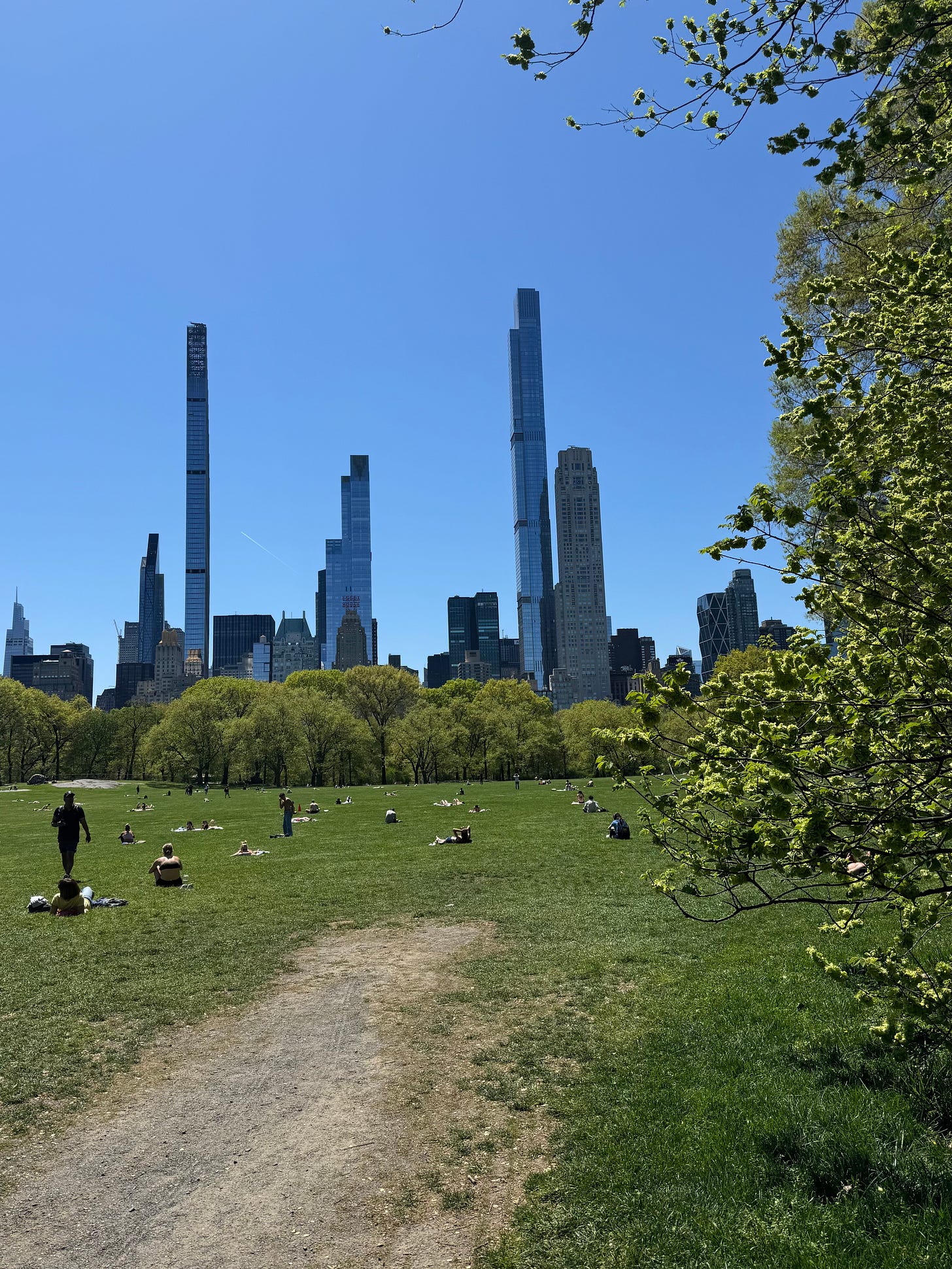Hello everyone,
I read an essay in T Magazine last weekend about Japan’s 72 microseasons and have been thinking about Ligaya Mishan’s piece ever since. The concept is beautiful and I love the poetic names ascribed to these mini seasons, which each last about five days: fish emerge from the ice, mist starts to linger. We are currently in the “peonies bloom” microseason. On Monday it will be “frogs start singing.”
I’d already been feeling anxious about the fleeting nature of spring. When the cherry blossoms and magnolias start to open in New York I try to take a walk each day to notice how the flowers change, transitioning from bud to full bloom. I know that with every gust of wind, the petals will start to fall and soon I’ll have to wait an entire year to see the tufts of pastel pink again.
During autumn last year, I also conducted this exercise as part of the happiness experiment for my essay in the Times. After interviewing Finns about their capacity for mindfulness, I made a point to notice how the leaves turned each day. I watched as a ginkgo on my block slowly changed from grass green to lime to golden yellow. Then as the branches became bare.
Watching these transitions always makes me sad. They happen too quickly. It’s a reminder of time passing by. I want to cling on, but nature is out of my control. Yet after reading the essay in T, I realized that I’d been thinking about these changes as losses instead of enjoying the ways the world shifts around us while preparing to enter a new phase. A week ago, the tulips in my neighborhood flower beds were standing upright. Now they are starting to wilt, but instead of feeling depressed that this microseason has ended, I am looking ahead to the next life cycle — the baby leaves and azaleas, which just this week bloomed outside the church by me. And in June, we have the roses. As Ligaya wrote in her essay, “In modern Japan, however, the seasons are as much an ontological framework as they are observable phenomena.”
For years I have been trying to change this same narrative in my head as it relates to work. I feel sad when my reporting trips end and sad after a story runs. I spend days or weeks or months on the research, the writing, trying to perfect every turn of phrase — and then it’s over. But the end of one project only means the beginning of the next.
Take even just this week. On Monday I finally began drafting my next story after procrastinating for three weeks since the reporting trip. I wrote and discarded three different ledes. Then I went on a walk and had a light bulb moment. I wrote a fourth lede and kept it (for now). I slowly chipped away at the nut graf and the other chapters. I moved sections around. Wrote a bunch of TKs. I feel today as if I am living in a different microseason than the one I was in on Monday. And I was: “last frost, rice seedlings grow.”
Thanks for being here <3
Britta Lokting
Endnote:
Continuing on the happiness train, here are tips from an 85-year-old. I especially enjoyed #5. Very relatable!
Throwing in some non-journalism content for fun. I saw the movie Sunset Boulevard for the first time last week, which is surprising because it’s the kind of movie I grew up watching with my family. Anyways, I loved.
More from T Mag’s Japan issue.
“The big issue roiling a small town: Does everyone deserve a second chance?”






Each week I forward "Britta Unfiltered" to my daughter, Mary, who is a poet. Sometimes it is hard to know the reach or benefit of the work we put out into the ether. Yours offers honest hope in the midst of doing something hard but worthwhile. As for procrastination, a good friend suggested a prayer he sends out to the universe for his own procrastination, "Help me abandon the procrastination that leads to self-hatred." Procrastination is not all bad, but it can be depleting. Thanks for your work.
Love the idea of micro seasons. I’m going to start looking for them, especially in this season. I love spring and summer because it feels like things are changing, but I am really dreading summer because it feels never ending.